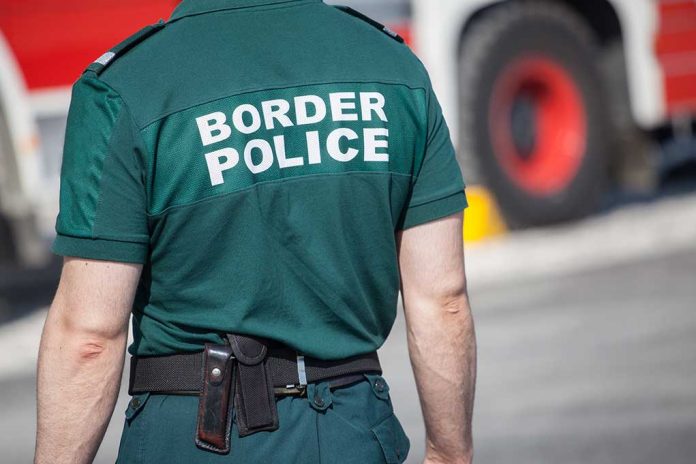
Mexican drug cartels escalate border violence, ordering attacks on US agents with weaponized drones and explosives.
Key Takeaways
- Mexican cartels have authorized the use of weaponized drones against U.S. Border Patrol and law enforcement.
- An internal memo warns federal agents to be vigilant and properly equipped due to this new threat.
- The Trump administration is considering deploying U.S. special operations forces to Mexico to combat cartels.
- Experts caution against military action, citing historical examples of escalated violence.
- A multi-faceted strategy including intelligence sharing and addressing root causes is recommended.
Cartels Employ Advanced Tactics Against Border Security
In a disturbing development at the U.S.-Mexico border, Mexican drug cartels have ramped up their aggression against American law enforcement. An internal memo obtained by The New York Post reveals that cartel leaders have authorized the use of weaponized drones and explosives against U.S. Border Patrol agents and military personnel. This escalation comes as a direct response to increased border security measures implemented under the Trump administration.
U.S. Border Patrol agents and Department of Defense personnel are ordered to report any drone sightings and to carry essential equipment, including first aid kits, tourniquets, body armor, and rifles. This precautionary measure underscores the seriousness of the threat posed by these criminal organizations.
Mexican drug cartels give order to attack Border Patrol agents with suicide drones and other explosives https://t.co/VVDAsyw9Kd pic.twitter.com/uTJ1MbmTPf
— New York Post (@nypost) February 3, 2025
Cartel Retaliation and Social Media Threats
The cartels’ aggressive stance isn’t limited to physical attacks. They’ve also taken to social media platforms to encourage illegal migrants to harass and target Immigration and Customs Enforcement (ICE) agents for assassination. This digital intimidation campaign further complicates the already tense situation at the border, putting additional strain on law enforcement personnel.
The motivation behind these escalated tactics is clear: cartel leaders are reacting to the increased U.S. presence at the border, which threatens their lucrative drug and human trafficking operations. The Trump administration’s crackdown on illegal immigration, including enhanced border security and deportation raids, has put significant pressure on these criminal enterprises.
Potential Military Response and Its Implications
In light of these threats, the U.S. government is considering a range of responses, including military intervention. Defense Secretary Pete Hegseth has stated that military strikes against cartels are “on the table” if they continue targeting Americans. The Trump administration is even weighing the deployment of U.S. special operations forces to Mexico to combat these criminal organizations directly.
However, experts caution against an overly aggressive military response. Historical precedents, such as Mexico’s “war on drugs,” demonstrate that direct military action can lead to widespread violence and retaliation. Instead, analysts suggest a more nuanced, multi-faceted approach to addressing the issue.
A Balanced Approach to Border Security
Experts advocate for a strategy that balances American safety with the complexities of confronting entrenched criminal networks. This approach includes enhanced intelligence sharing, training for Mexican forces, and addressing root causes such as drug demand in the United States. Additionally, promoting economic development in Mexico and improving domestic preparedness in the U.S. are seen as crucial steps in reducing cartel influence and protecting law enforcement personnel.
As the situation continues to evolve, it’s clear that a thoughtful, comprehensive strategy is necessary to address the complex challenges posed by Mexican drug cartels. The safety of U.S. law enforcement and border security personnel remains paramount, but so too does the need to avoid escalating violence that could have far-reaching consequences for both nations.
Sources:
Cartels authorized the use of weaponized drones against ICE agents
Cartels Prepare Weaponized Drones Amid Renewed Threats



